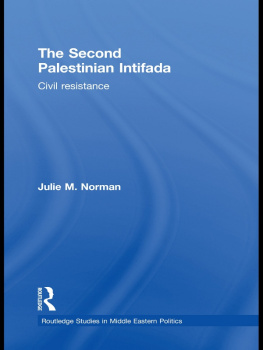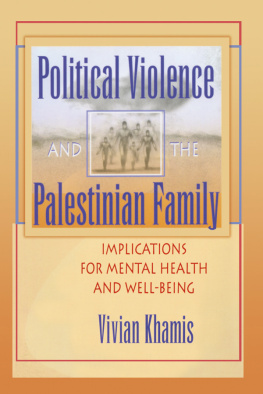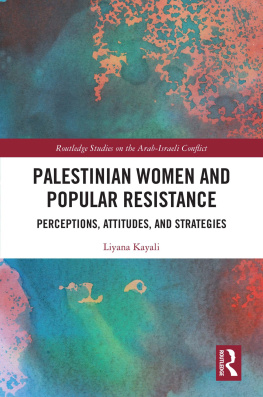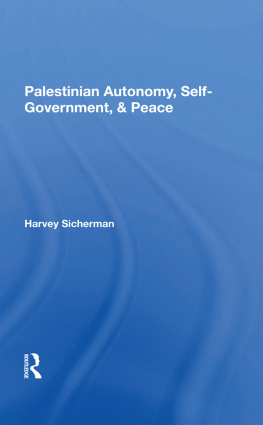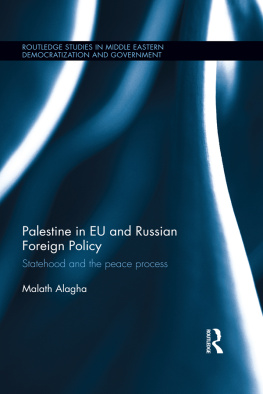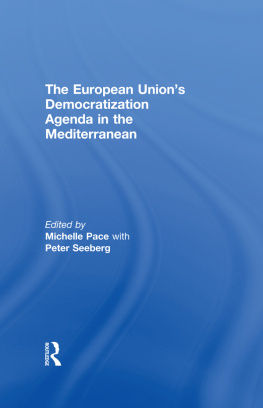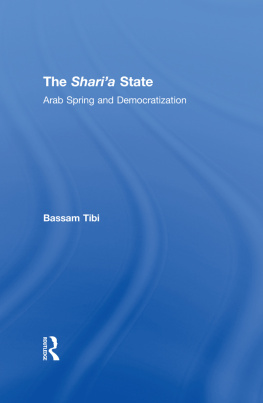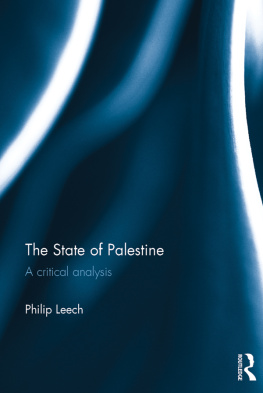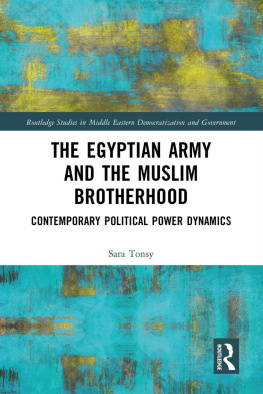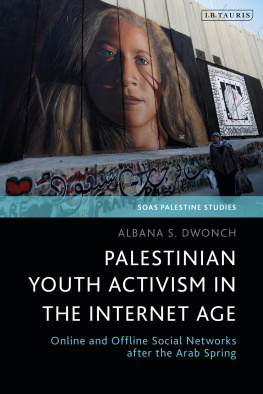The book brilliantly examines the crucial aporia into which the Palestinian struggle for national liberation has ended up: the inhibition of the establishment of a Palestinian state as a result of the very theatrical statehood machinery performed by the Palestinian Authority with the support of the international community. Reconstructing the post-Oslo attempts to create the new unachievable sovereign entity and carefully navigating the conflictual political emotions of the key characters in this tragedy, Pace and Sen offer a thoughtful and provocative gaze on one of the most complex cases of self-determination in contemporary history.
Nicola Perugini , The University of Edinburgh
Michelle Pace and Somdeep Sen offer a rare evaluation of a subject that has long been unjustifiably ignored or hastily grouped under ostensibly more urgent contexts concerning Israeli security and American foreign policy. The authors have provided a concise analysis of the Palestinian reality under the PA, one which is grounded in exhaustive research, backed by ethnographic evidence. It convincingly explains why various political actors, Palestinians and others, collude to promote the farce that the PA is in the process of achieving an independent Palestinian state. While keeping the Israeli, regional and international contexts in mind, Pace and Sen have successfully helped unshackle the study of Palestinian politics and the ongoing struggle for freedom from its compulsory marginalization.
Ramzy Baroud , author , The Last Earth: A Palestinian Story
What is the meaning of the state in Occupied Palestine? Pace and Sen trace this crucial question in their fascinating and innovative book, detailing how the Palestinian Authority, and other actors, engage in performances of statehood. A must-read for anyone wanting to untangle the seeming paradox of the stateless state of Palestine.
Sophie Richter-Devroe , Hamad Bin Khalifa University
The Palestinian Authority in the West Bank
The Palestinian Authority in the West Bank explores the manner in which the Palestinian Authoritys performative acts affect and shape the lives and subjective identities of those in its vicinity in the occupied West Bank. The nature of Palestinians statelessness has to contend with the rituals of statecraft that the Palestinian Authority (PA) and its Palestinian functionaries engage in. These rituals are also economically maintained by an international donor community and are vehemently challenged by Palestinian activists, antagonistic to the prevalence of the statist agenda in Palestine.
Conceptually, the understanding of the PAs theater of statecraft is inspired by Judith Butlers conception of performativity as one that encompasses several repetitive and ritual performative acts. The authors explore what they refer to as the fuzzy state (personified in the form and conduct of the PA) looks like for those living it, from the vantage point of PA institutions, NGOs, international representative offices, and activists. Methodologically, the book adopts an ethnographic approach, by way of interviews and observations in the occupied West Bank and East Jerusalem.
The Palestinian Authority in the West Bank makes an important and long-due intervention by integrating performance studies and politics to suggest an understanding of the theatrics of woeful statecraft in Palestine. The book is an essential resource for students and scholars interested in the study of the state, International Relations and Politics, Palestine Studies, and the Middle East.
Michelle Pace is Professor (MSO) at Roskilde Universitys Department of Social Sciences and Business. She is also Honorary Professor in Politics and International Studies at the University of Birmingham in the UK. Her research areas of interest include migration studies, memory studies, and emotions in IR.
Somdeep Sen is a postdoctoral researcher at Roskilde University. His research centers on spatial politics, settler colonialism, postcolonialism, and migration in the Middle East and Europe. He has published on the IsraeliPalestinian conflict and co-edited a volume on Syrian refugee childrens journeys in exile (Routledge, 2018).
Routledge Studies in Middle Eastern Democratization and Government
Edited by: Larbi Sadiki
Qatar University
This series examines new ways of understanding democratization and government in the Middle East. The varied and uneven processes of change, occurring in the Middle Eastern region, can no longer be read and interpreted solely through the prism of Euro-American transitology. Seeking to frame critical parameters in light of these new horizons, this series instigates reinterpretations of democracy and propagates formerly subaltern, narratives of democratization. Reinvigorating discussion on how Arab and Middle Eastern peoples and societies seek good government, Routledge Studies in Middle Eastern Democratization and Government provides tests and contests of old and new assumptions.
Oil States in the New Middle East
Uprisings and Stability
Edited by Kjetil Selvik and Bjrn Olav Utvik
Politics of the Islamic Tradition
The Thought of Muhammad Al-Ghazali
Mohammed Moussa
The Arab Lobby and the US
Factors for Success and Failure
Dania Koleilat Khatib
Hamas and the Media
Politics and Strategy
Wael Abdelal
Egyptians in Revolt
The Political Economy of Worker and Student Mobilizations 19192011
Adel Abdel Ghafar
US Hard Power in the Arab World
Resistance, the Syrian Uprising and the War on Terror
Layla Saleh
Palestine in EU and Russian Foreign Policy
Statehood and the Peace Process
Malath Alagha
Tunisias International Relations since the Arab Spring
Transition Inside and Out
Edited by Tasnim Abderrahim, Laura-Theresa Krger, Salma Besbes and Katharina McLarren
EU Foreign Policy and Hamas
Inconsistencies and Paradoxes
Adeeb Ziadeh
Politics and Revolution in Egypt
Rise and Fall of the Youth Activists
Sarah Anne Rennick
Kurdistan in Iraq
The Evolution of a Quasi-State
Aram Rafaat
Political and Institutional Transition in North Africa
Egypt and Tunisia in Comparative Perspective
Silvia Colombo
Clientelism and Patronage in the Middle East and North Africa
Networks of Dependency
Edited by Laura Ruiz de Elvira, Christoph H. Schwarz and Irene Weipert-Fenner
Hamas and Palestine
The Contested Road to Statehood
Martin Kear
The Palestinian Authority in the West Bank
The Theatrics of Woeful Statecraft
Michelle Pace and Somdeep Sen
The Failure of Democracy in Iraq
Religion, Ideology and Sectarianism
Hamid Alkifaey
For more information about this series, please visit: www.routledge.com/middleeaststudies/series/RSMEDG

Figure 0.1 Mural of Leila Khaled on the separation barrier/racial segregation wall near Bethlehem, June 2016.
Source: Photo courtesy of the authors Michelle Pace and Somdeep Sen.
The Palestinian Authority in the West Bank
The Theatrics of Woeful Statecraft
Michelle Pace and Somdeep Sen

First published 2019
by Routledge
2 Park Square, Milton Park, Abingdon, Oxon OX14 4RN
Next page

